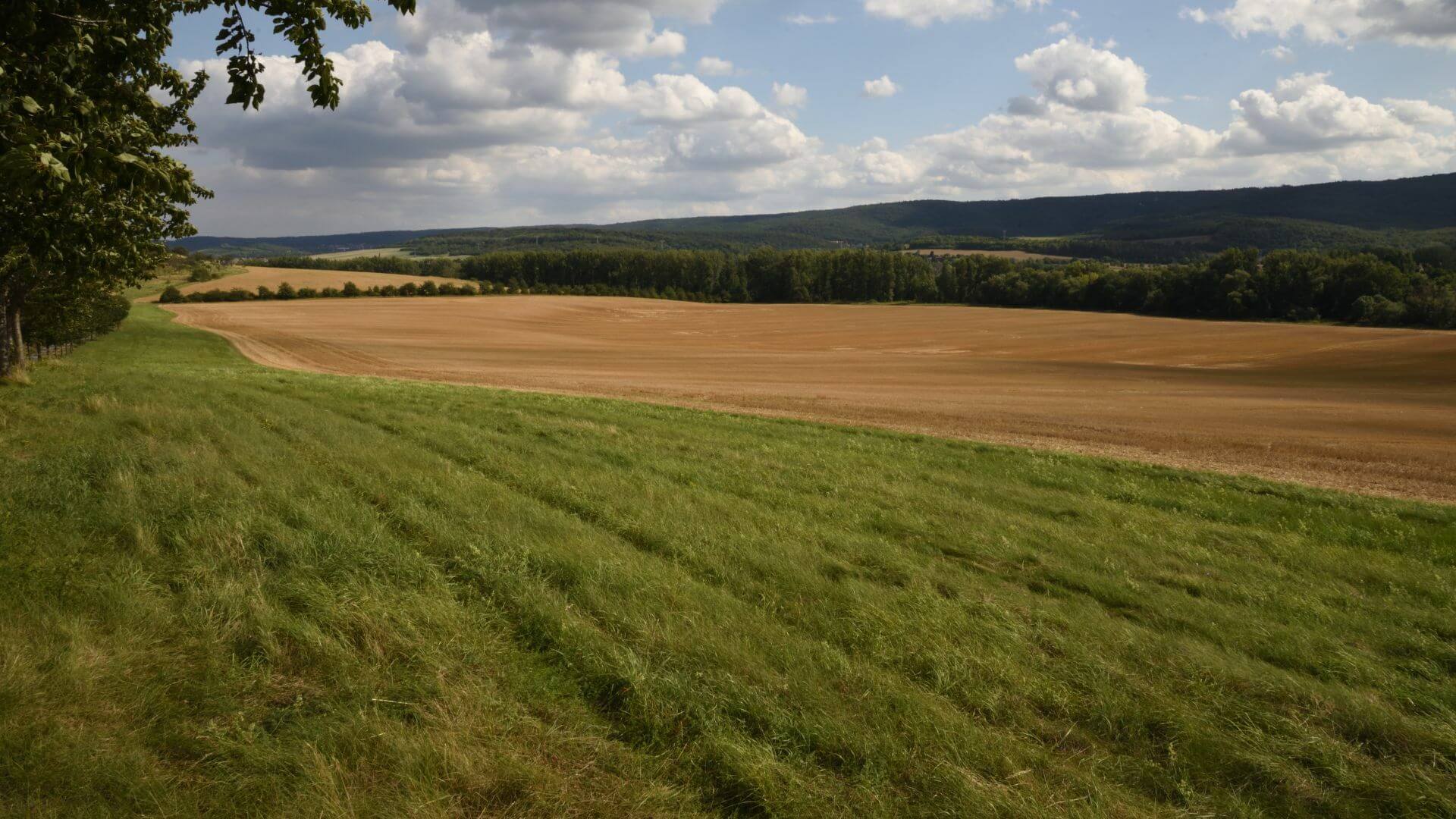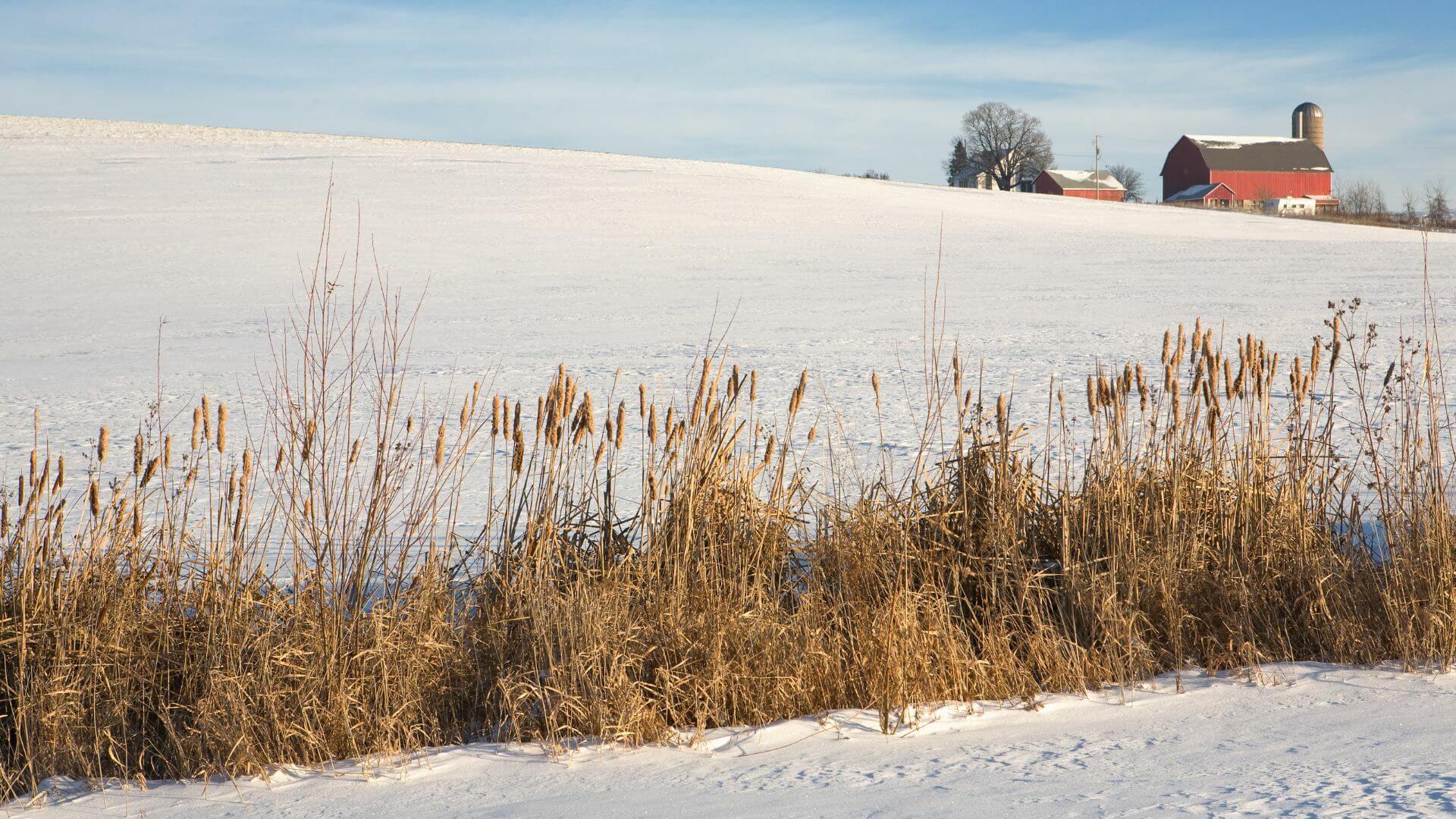While Michigan’s dynamic real estate market presents some promising opportunities for investment in 2025, such rich natural resources, a well-diversified economy, and a rising population turn the state into a pretty attractive place to invest in land. From residential development and agriculture to various commercial opportunities, Michigan indeed has it all. In this article, we will look into the potential of Michigan’s land market, focusing on its main trends, challenges, and effective strategies that can be used to navigate this ever-changing landscape.
Why Michigan is a Land Investor’s Paradise
Out of all states in the US, Michigan stands out as a prime location for land investment because of its special combination of economic, geographic, and social factors. Its economy reveals an interesting mix of rapid urban growth in places such as Detroit and Grand Rapids, and vast areas that cater to rural needs, including agriculture and recreation.
Urban and Suburban Growth
Over the last ten years, many families and young professionals have relocated to Michigan suburban neighborhoods, rural areas and small towns. This demand is pushing land values upwards, especially in Ann Arbor and Traverse City. As people continue to work from home, demand for bigger pieces of land closer to nature goes up, increasing demand for suburban and rural areas.
Natural Resources and Renewable Energy
Michigan is richly endowed with natural resources such as wind and sunlight; i’s now repositioning itself to be one of the hubs that will be developed for renewable energy. Investors buy land solely for the installation of solar farms or the generation of wind energy. Particularly, the large rural areas of the state are now beginning to be attractive to buyers seeking to cash in on Michigan’s renewable portfolio standard, which calls for increases in the generation of clean energy in the next decade.
Niche Opportunities in Michigan Land Investment
 There are many niches in which an investor can diversify his portfolio in land investment. These include:
There are many niches in which an investor can diversify his portfolio in land investment. These include:
1. Residential Lots
Residential development is a strong point in the state of Michigan when it comes to real estate investing. Because of increased demand for housing, buying plots for single-family homes or multi-unit developments can reap substantial returns.
2. Agricultural Land
Agriculture is an important part of the economy in Michigan. The state is one of the country’s major fruit-producers of cherries and blueberries along with soybeans. Farmland investments are stable, with options to lease out to local farmers or to cash in on increasing demand for organic and locally sourced foods.
3. Timberland
The forest areas of northern Michigan is an opportunity not to be missed: one for timber harvesting and another for sustainable forestry. Besides, the tax advantage in timberland investments is not something to be trifled with.
4. Recreational Properties
Lands around Michigan’s many lakes, rivers, and national forests lend themselves to recreational land use. Investors can construct hunting lodges, fishing camps, or vacation rental properties with the intention of leveraging the state’s healthy tourism economy.
The Challenges of Land Investing in Michigan
Every investment has challenges. Being cognizant of these challenges will go a long way toward ensuring long-term success.
Zoning Restrictions
Zoning ordinances will differ among counties and municipalities throughout Michigan. Proposed usage must be determined before land acquisition and must be found to be acceptable to the local governmental body.
Environmental Concerns
There are numerous wetlands and environmentally sensitive areas throughout Michigan. Investors need to navigate environmental assessments, as well as all potential limitations on development.
Infrastructure Gap
Lack of access to basic infrastructure like roads, electricity, or active water systems may reduce the immediate usability of land, particularly for residential or commercial purposes in rural locations.
Strategic Approaches for Land Investing
Although there are many challenges , a well-constructed strategy can help mitigate risks and maximize returns.
Think Long-Term
The greatest land investment often involves patience. While city lots may offer quicker returns, land in more rural areas or land that is undeveloped can appreciate significantly over time. Leasing this land to farmers or renewable energy projects can facilitate income throughout the hold period.
Prioritize Location
Even in Michigan, location is everything. Those areas with growing populations or infrastructure developments, like Grand Rapids and the I-75 corridor, are attractive. Look for parcels near schools, major highways, or economic centers.
Build Relationships with Local Experts
Teaming up with local real estate brokers, attorneys, and land specialists may make the process of wading through Michigan’s complex land market a great deal easier. They can provide insight into things like zoning laws and market trends, among other pitfalls that could arise.
Emerging Trends in Michigan Land Investment
Beginning in 2025, several emerging trends shape the real estate landscape. Knowing what they are may create an advantage.
Renewable Energy Expansion
Demand for land suitable to host solar and wind energy projects continues to grow. Investors looking to target properties with high solar exposure or proximity to wind corridors can receive both state and federal incentives.
Eco-Friendly Developments
Sustainable housing projects and eco-tourism ventures are the current hype. Landowners who have a strong environmental stewardship component may find a ready market for their properties.
Smart Agriculture
With technological farming practices driving interest in agricultural land and therefore supporting Michigan’s dynamic real estate market, more promising opportunities continue to open up to investors in 2025. Rich in natural resources, with a diversified economy, and further population growth, Michigan is an excellent state where one could consider land investing. Whether residential development, agricultural pursuits, or commercial opportunity, Michigan does not disappoint.
Investing Strategically in Land
Historically, land investing has proven to be one of the most critical wealth builders and uniquely enjoys advantages over other asset classes. Unlike stocks and bonds, land is a commodity in limited quantity and tends to appreciate over time as the population increases, urbanizes, and as infrastructure gets built around it.
Strategic investment in land means sharp analysis with respect to market trend analysis, zoning, and a site’s future potential with respect to return maximization and risk minimization.
Land opens ways to diversify a portfolio-be it farming, commercial projects, or residential construction-toward long-term appreciation. Below are outlined key concepts, benefits, and methodologies of land investing that you can use to approach this business area both confidently and with vision.
Think Long-Term
Most successful land investing requires patience. While plots in an urban setting may give quicker returns, rural or underdeveloped plots can appreciate over time dramatically. Land can be leased for agriculture or renewable energy projects, which will provide a regular income during the holding period.
Location, Location…
Location, location, location! – In Michigan, along with everywhere else, it’s all about location. Places that have a population or infrastructural development, like Grand Rapids or along the I-75 corridor, are hot. Watch out for tracts of land lying close to schools, major highways, or commercial hubs.
Build Relationships with Local Experts
Teaming up with local real estate agents, attorneys, and land planners can make the process much easier when dealing with Michigan’s sometimes-fractured land market. They can provide insight into everything from zoning ordinances to market direction and potential pitfalls.
2025 Trends to Watch for Michigan Land Investment
Exciting real estate investment trends continue to take shape in Michigan in the year 2025, and being more informed is critical in giving one a competitive edge. At the latest estimates, Michigan has some 10.2 million residents, a slight increase over 2020’s figure of 10.0 million.
On the housing front, per the U.S. Census Bureau, the statewide median home value neared $235,000 in mid-2024, representing growth of about 8-10% YoY. Meanwhile, the median listing prices in the Detroit-Warren-Dearborn metro area have risen 7.2% thus far in comparison with 2023, reflecting continued demand in urban centers.
Job growth also benefits land values: Michigan’s unemployment rate fell to 4.2% in 2024, down significantly from the more than 14% peak in April 2020. Part of that comes from electric vehicle manufacturing, life sciences, and renewable energy. Farmland remains robust, too: according to the USDA, average cropland values in Michigan reached approximately $4,300 per acre in 2024, up about 5–6% from the same period a year ago due to consistent demand for grains and other agricultural commodities and increasing acres being converted to solar farm development.
Taking these signals together-higher home values, recovering job market, and stellar agricultural land appreciation-indicate the continuing diversified prospects in land investment for Michigan. As the state presses on in strategic positioning into EV production and clean energy, only the perceptive investor who watches these trends and capitalizes on strategic locations can make the most of the 2025 year and beyond.
Renewable Energy Expansion
Land that can produce solar and wind energy will become increasingly more valuable. Investors who examine property that has high exposure to the sun or abuts wind corridors stand to cash in on state and federal incentives.
Green Development
There is increased interest in green home developments and ecotourism. Landowners involved in responsible stewardship of their property may have a great market for their lots.
Smart Agriculture
Tech-enabled farming practices are driving interest in agricultural land that supports innovative methods such as precision farming and hydroponics.
A Case Study: Investing in Traverse City
 The diverse opportunities available to land investors are well-illustrated by Traverse City in northern Michigan. With its vineyards, cherry orchards, and natural beauty, the area is attractive to tourists and residents alike. An investor in this area might look at buying a plot to develop a small vineyard and tasting room or land near the water for vacation rental properties.
The diverse opportunities available to land investors are well-illustrated by Traverse City in northern Michigan. With its vineyards, cherry orchards, and natural beauty, the area is attractive to tourists and residents alike. An investor in this area might look at buying a plot to develop a small vineyard and tasting room or land near the water for vacation rental properties.
Sustainability has been an increasing focus in Traverse City, which has drawn renewable energy projects. Properties suitable for wind farms or large fields of solar panels are in high demand and command long-term leases that pay consistent income.ative methods such as precision farming and hydroponics.
Michigan’s Land Market Is Full of Potential
From suburban development to agriculture to renewable energy projects, the 2025 land investment landscape for Michigan is varied in its prospects. By better understanding the market trends, evaluating risk factors, and, to some extent, applying certain strategic approaches, investors can unlock the full potential of this heterogeneous state.
Michigan Whitetail Properties is the leading Michigan land broker that will guide investors in their investment journey, making it as smooth and as fruitful as possible. The trust and expertise in our team of dedicated land specialists form the backbone of unparalleled knowledge about the land market in Michigan. From hunting land to farmland, to development properties, Michigan Whitetail Properties provides personalized access and guidance through the best land opportunities throughout the state of Michigan.
Success in Michigan land investment requires both hindsight and forbearance. From the immediate development purchase to buy-and-hold for appreciation, Michigan offers so much opportunity for a wide array of investor strategies. Let your Michigan land investment be more than just a financial return but one that leaves legacies in communities and landscapes you love through the expertise of Michigan Whitetail Properties by your side.
